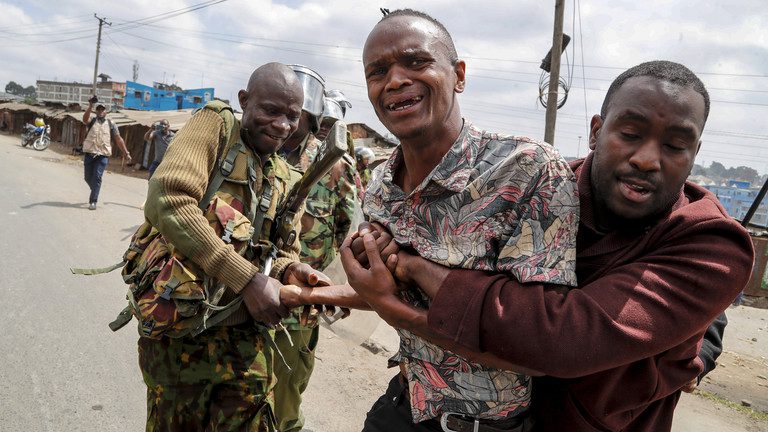Africa
Kenyan lawmakers accuse the West of interfering

According to officials, African citizens are upset with the West’s imperialist tendencies.
According to Miguna Miguna, a former presidential adviser, Western nations have long maintained hegemonic dominance in Kenyan politics, validating Moscow’s current claim of intervention in Nairobi’s domestic affairs.
Miguna told RT on Friday that Western powers continued to impose their interests on the East African nation even after independence, as they do in other regions of the continent.
“The West has always interfered in Kenya’s internal affairs for the last 60 years,” he claimed. “They imposed the first president and the second president.” They, like many other African regimes, have arranged the assassination of Kenyan geniuses and undermined others.”
The Kenyan lawmaker was replying to a joint statement released by 13 other countries’ diplomatic corps in Nairobi, which voiced alarm over the “high levels of violence” during recent anti-government protests.
Protests in Kenya against growing living costs and tax hikes have been marred by violence, resulting in fatalities and over 300 arrests.
Raila Odinga, Kenya’s opposition leader, called for a three-day protest this week, which began on Wednesday with reports of skirmishes between police and stone-throwing protesters in Nairobi and elsewhere in the country.
According to local media, at least 15 people were shot and killed in last week’s events, and many others were hurt, including 53 children, after tear gas was thrown inside their school compound.
On Tuesday, ambassadors from 13 Western nations in Kenya appealed for discussion between the government and the opposition, saying they recognise Kenyans’ daily struggles.
The Russian embassy in Nairobi responded by characterising their concerns as meddling in Kenyan internal issues.
Sefu Sanni, General Secretary of the Communist Party of Kenya, told RT that the people of the East African country are tired of other nations like the United States dictating to their government. She claims that the involvement extends beyond the current instability and encompasses cultural problems such as Western pressure to ratify an LGBTQ human rights law.
Sanni stated that this involvement plainly indicated “imperialism” and “neocolonialism.”
